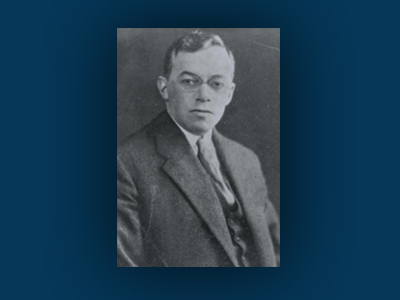October 17, 1880
Ze’ev Vladimir Jabotinsky is born in Odesa. Mostly known for his Revisionist attitudes toward Zionism, which influence some to take a more militaristic role in helping to bring about a Jewish state, Jabotinsky is also an exemplar of communal social action in areas of self-defense, youth, immigration and fundraising. In 1903, after pogroms in Odesa and Kishinev, he promotes the idea that Jews actively engage in their own self-defense and in support of Zionism.
In Palestine during World War I, he is central to the creation of the Jewish Legion in the British army. After the war, in response to Arab violence against Jews in the Yishuv, he organizes more defense forces to protect Jewish settlers. He runs afoul of British policy and many Zionist leaders for being proactive in Jewish self-defense.
Jabotinsky joins in organizing Keren Hayesod (“The Foundation Fund”). It becomes the main vehicle to fundraise and finance immigration and settlement, laying the foundation for a Jewish state. Jabotinsky is responsible for creating the publicity materials to encourage Jews worldwide to contribute to upbuilding the national home through a voluntary system of “taxation.”
In 1923, he is central to the creation of the Betar youth movement, which plays a major role in teaching Jewish youth Hebrew language, culture and self-defense. In 1932, in response to immigration restrictions imposed by the British, he launches Af Al Pi (“In Spite Of”) to illegally bring Jews to Palestine from Europe, an endeavor which becomes increasingly important after the Nazis rise to power in 1933.
Jabotinsky believes that an Arab minority in a Jewish state should have equal rights.
Jabotinsky dies in New York in August 1940. His will stipulates that his remains should be buried in the Land of Israel only by a Jewish government there. In 1964, Prime Minister Levi Eshkol has Jabotinsky’s remains buried on Mount Herzl in Jerusalem.
The Knesset website has a Jabotinsky page with a biography, bibliography of writings and photos.
The Jabotinsky Institute in Israel has a wealth of information.









